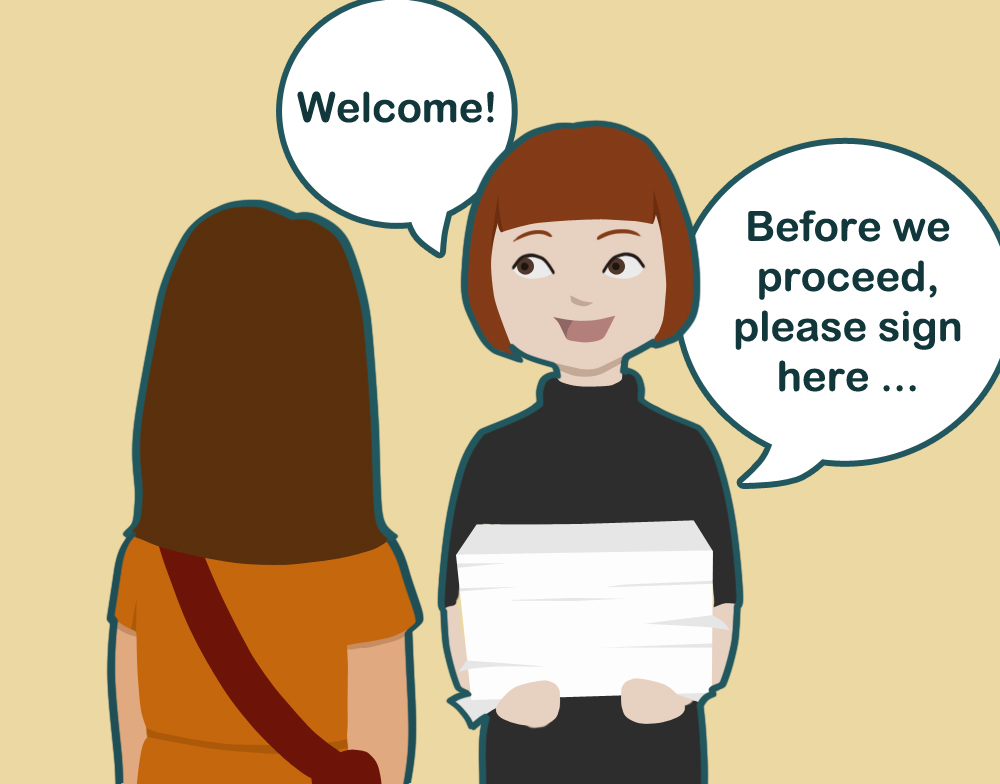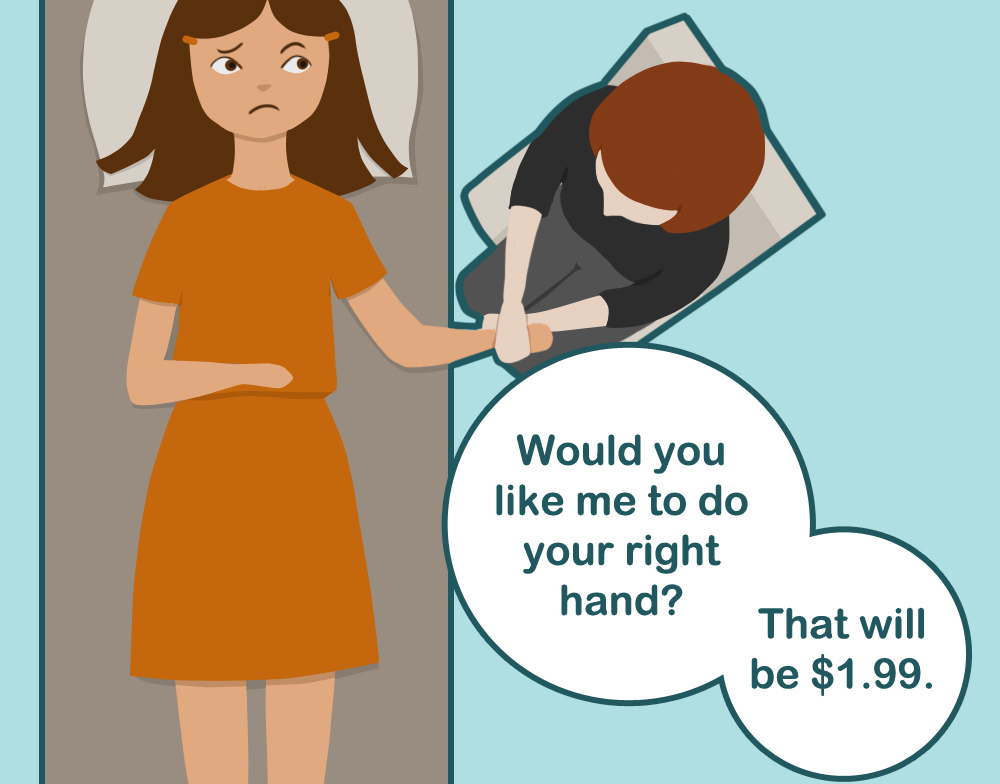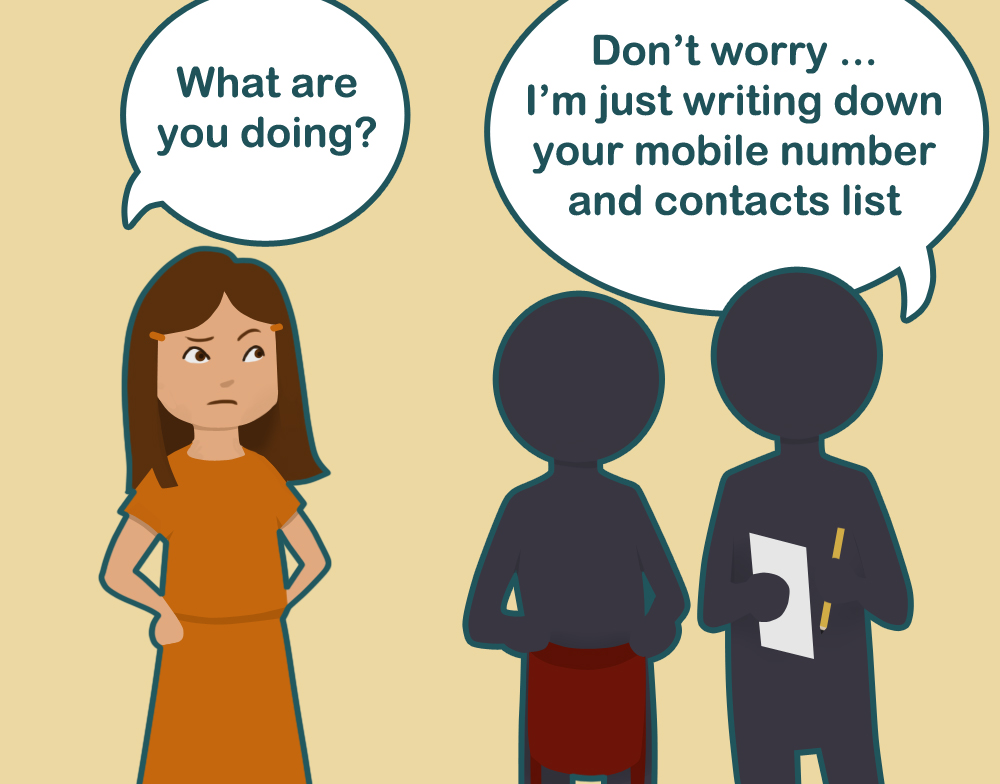In a project funded by ACCAN, researchers at The University of Sydney analysed 61 top-rated mental health apps available to Australian consumers.
Mental health apps commonly collected consumer data, requested that consumers make in-app purchases, and made health claims. Although this is normal in the app world, we thought, “How would this stand up in the real world?”
![[Jane looking at the hand massage signs. Thinks, “hmmm…just what I need”]](/images/content/Article%20pictures/Panel1_v2.jpg)
Mental health apps often promised they could easily and rapidly improve mental health symptoms and that they were free to try – sounds like a good deal!
“Free to try, nothing to lose!”
“De-stress and relax in only 10 min!”
Tips
- Select apps where you can clearly identify the developer and a means to contact them in the event of a concern
- Research the developer and ensure that their credentials and experience match the service they are offering
- If the developer is not responsible for the app’s content, make sure you can identify who is

The Australian Government specifies minimum standards for privacy policies for mobile apps. Only half of sampled apps met any single requirement. It was often hard to find the privacy policy and few were easy to read.
Tips
- Choose apps that have clear, understandable privacy policies and take accountability for your privacy and security
- Be aware that some data sharing may be hidden and that the way an app shares your data could change at any time

But, nearly 80% of the sampled apps offered in-app purchases, which meant that consumers could only access basic content unless they paid extra. This included apps consumers had already paid to download.
Tips
- Free apps may cost you in other ways: check whether an app offers in-app purchases or hosts ads
- Monitor your credit cards for auto-renewals if you subscribe to an app, and remember to be pro-active about cancelling subscriptions you no longer need

App developers request “permissions” that allow them to interact with your device and personal data. Among sampled apps, this commonly included access to the internet, the device’s memory, and your phone number.
Tips
- Beware of apps that request more permissions than are needed for the app’s function
- Consumers can switch the permissions associated with individual apps on and off. Here’s how to change permissions on smartphones:
The operation of the Australian Communications Consumer Action Network is made possible by funding provided by the Commonwealth of Australia under section 593 of the Telecommunications Act 1997. This funding is received from charges on telecommunications carriers.
Illustration by Jazmin Ozsvar
For research enquiries contact Dr Quinn Grundy: This email address is being protected from spambots. You need JavaScript enabled to view it.
Download: ![]() Navigating mental health apps495 KB
Navigating mental health apps495 KB
Download: ![]() Navigating mental health apps587.22 KB
Navigating mental health apps587.22 KB

Comments powered by CComment